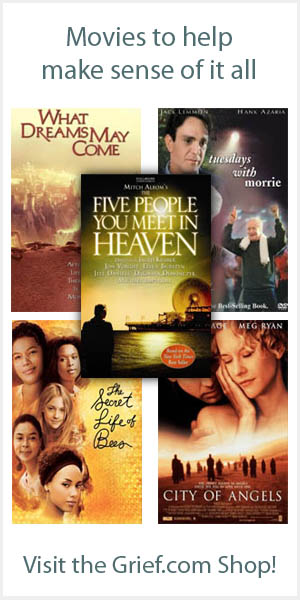Script review
And just like that…
As a grief specialist, I appreciate whenever TV includes the subject that no one wants to tackle. If you’ve watched the new TV series following up on Sex and the City with Sarah Jessica Parker you know unwanted grief has infiltrated their world. (Just like ours). TV must be engaging, so being realistic is often overlooked. So far, most of it has been done well. Below are some of the concepts I thought they did really well. I’m being a little vague below to not give away anything, but still, spoiler alert.
The moments that resonated for me:
• You don’t know what it is like to have someone by your side and suddenly gone
• That feeling of “What do I do now?”
• Carrie’s physical pain in her back
• The funeral home sizzle reel
• How death reminds us what’s important
• The friend you have to care for who becomes the needier one
• We want to find someone or something to blame – The bike
• How estrangement plays into grief
• Addiction
• Gratitude and grief
• Hearing about others grief while you newly grieving
• Crying vs not crying
• Magical thinking – texting someone who has died
• Unexpected deliveries
I know many wanted the reality of a 911 call. Which some are calling the modern Rose and Jack moment. (Titanic reference that she could have saved him) This is different. It can take time to process what she was seeing. It was about 45 seconds total, (For the cardiac world, we know time is muscle and we should call 911 asap). The paramedics were shown in the background implying they did get called. For some, it was so realistic that it was triggering.
Get Help
For help understanding grief visit aboutgrief.com and ongoing support visit tenderheartssupport.com
I love when a show like And Just Like That gets a lot right as this show did. For anyone whose producing/writing a major show or film, grief.com/script-review does have a script consultation service – See below.
Script Consultation – Life’s Most Dramatic Moment
Our script consultation service to improve the accuracy and the sensitivity of portrayal of terminal illness, death and pain in film and television. All of our script consultations are directed by Grief.com contributing writer and Grief expert David Kessler.
Taking a realistic look at the terminally ill, their families, their caregivers – both professional and nonprofessional – and the decisions they face as the end nears gives rise to a multitude of dramatic stories. Writers can take death out of the shadows, help people understand their choices, and make profound changes in people’s lives. Some of the situations people face at the end-of-life, all with the ingredients of compelling drama are:
• Care for a dying family member that leaves the survivors physically, emotionally and financially bankrupt.
• Treating dying as a strictly medical event, with too little attention to patients’ and families’ psychological and spiritual needs.
• Doctors who regard death as a defeat for medical science and a personal failure, rather than an inevitable part of life.
• The low priority of pain and symptom control in hospitals and nursing homes, where most people die.
• Inadequate pain control due to myths and misunderstandings. Some palliative care doctors would say pain can “always” be controlled, even though it is controlled less than half the time!
• Caregiving by family members and friends – an invaluable, but undervalued gift and overwhelming responsibility.
• The reality of the “sandwich generation” – growing numbers of Baby Boomers who are caring for both children AND parents, who often live several states away.
• Denial and avoidance. People rarely talk about the kind of care they want, which reduces the chance they will get it and increase their loved ones’ burdens.
By revealing accurately how badly dying is often handled and how well it can be done, entertainment media can help reach more people than my books ever will.
An often free service for scriptwriters, producers, researchers and others with issues of terminal illness, chronic pain and death in their storyline. Most consultations are free in order to raise the bar on the way end of life is portrayed on the TV and the Screen.
We can also provide:
• Authoritative information and guidance
• Access to hands-on experts in many specialties
• Real-life examples of different cultural attitudes toward terminal illness
• Dealing with grief and loss realistically and compassionately.
• Access to visit working hospices and talk with the dying and their loved ones.
Learn More
For more information concerning our Script Review Services, contact David Kessler directly via email at david@grief.com.
Get Help
For help understanding grief visit aboutgrief.com and ongoing support visit tenderheartssupport.com




